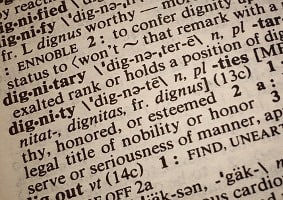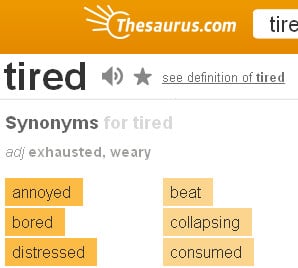In this article, I give you some tips and advice for the best ways to improve your English vocabulary.
Read in English
Reading is an excellent way to improve your English vocabulary because you will learn lots of different types of words (verbs, nouns, adjectives, informal English, formal English)

It is fun and interesting to read a story or to read a news article. Since it is fun, you will be more motivated to do it and it won’t seem like work or study. There is a real reason to learn the new words (to understand the story).
Another advantage of reading is that you will see the same word several times in different sentences. This repetition helps you learn more effectively.
There are different things you can read to improve your English. I recommend, in particular:
- Simplified English books
- Teen fiction and young adult books
- Newspapers
- Magazines
- Autobiographies and biographies
Let’s look at each one in more detail.
Read simplified English books
Simplified books are also called “graded readers” or “easy readers.” They are called “simplified” because the vocabulary is suitable for English learners to understand. The sentence structure is also adapted to English language students.
There are different levels of difficulty for all levels of English (from beginner/elementary to advanced.) I recommend at least the intermediate level. The books sometimes also have an audio version.
Sample:
The girl was called Emma Morley. The boy’s name was Dexter Mayhew. They were lying on the narrow bed in Emma’s room in a shared flat. It was four o’clock in the morning. The two young people didn’t know each other very well, but certainly this was a night for thinking about the future.
Source: “One Day” by David Nichols (Macmillan)
Example authors: David Nichols, Richard MacAndrew, Penny Hancock.
Publishers: Cambridge readers, Macmillan readers, Penguin readers.
Read teen fiction books and young adult books
Teen fiction books are for native speakers aged between 10 and 15.
Young adult (YA) books are for native speakers aged between 16 and 25.
Since they are for young native speakers, the level of English has also been slightly simplified. This makes them suitable for learners of the English language.
Sample:
It was almost December, and Jonas was beginning to be frightened. No. Wrong word, Jonas thought. Frightened meant that deep, sickening feeling of something terrible about to happen. Frightened was the way he had felt a year ago when an unidentified aircraft had over flown the community twice.
Source: “The Giver” by Lois Lowry (HarperCollins Children’s Books)
Example authors: Lois Lowry, Suzanne Collins, John Green.
Publishers: HarperCollins, Macmillan, Penguin.
Read newspapers
For upper-intermediate and advanced level English students, I strongly recommend the reading of newspapers to stay up to date with news and current affairs and to learn new vocabulary on a very wide range of subjects (politics, economics, business, sport, legal, health)

I do not recommend you read the tabloid newspapers (The Sun, The Daily Star, The Daily Mirror, The Daily Express) because the style is very informal.
Here is a list of good quality newspaper that I recommend:
British newspapers
- The Times
- The Observer
- The Independent
- The Daily Telegraph
- The Financial Times (business)
American newspapers
- The International Herald Tribune
- The New York Times
- The Wall Street Journal (business)
Tip: Ask the managers of English pubs and large international hotels to give you their old newspapers and magazines.
Read magazines
Magazines are an excellent way to learn new vocabulary. The photographs, short articles and more informal style are easier to understand than newspapers.
There are thousands of magazines to choose from. Choose a subject that interests you – you will be more motivated to read it!
Here is a list of magazines by subject that I recommend :
- Top Gear (cars)
- National Geographic (current affairs)
- Time magazine (current affairs)
- Four Four Two (football / soccer)
- Vogue (fashion)
Read autobiographies and biographies
If you have an advanced level of English, then I recommend you read autobiographies of famous and successful people. Since the subject of the autobiography is famous and had lots of success in their lives, their life story will be very interesting and inspiring and that will motivate you to read and finish the book. If you need to improve your vocabulary in a particular topic, you can choose the autobiography of someone who works in that industry. For example, if you need to improve your vocabulary in the finance industry, you could read billionaire’s Warren Buffet’s excellent biography called “The Snowball”. It’s a lot more interesting than just reading a finance text book or dictionary!
As mentioned above, these are books for advanced level learners or for learners who would like to get to advanced level.
There are many to choose from. Choose an autobiography of someone you already know a bit about from the media but would like to find out more. – That way you will be keen to keep reading it.
Here are some suggestions :
- Total Recall – Autobiography of Arnold Schwarzenegger
- Humble Pie – Autobiography of Gordon Ramsay
- My Side – David Beckham
- The Snowball – Warren Buffet
- For the Record – David Cameron
Play games
There are lots of word games you can play in real life, online or even on your mobile phones. Here are some examples:
Crosswords: You find words by solving clues.
Boggle: Players have 3 minutes to find words in the grid.
Scrabble: Players place letters on the board to form words.
Watch my YouTube videos
My YouTube channel has over 450,000 subscribers from all over the world!
Link: Crown Academy of English Youtube channel (Don’t forget to subscribe!)
I have over 200 videos on my YouTube channel. All my videos have the words on the screen so that you can follow what I’m saying. It’s an excellent way to learn new English words.
Learn how to use a good dictionary
I strongly advise you to buy and use a good English dictionary.

A good dictionary will have:
- type of word (noun, verb, adjective, adverb..)
- phonetic transcript (IPA) to help with pronunciation
- all the meanings in order of importance
- example sentences
- CD version / online services
- illustrations
Examples of good dictionaries:
- Oxford Advanced Learners
- Cambridge Advanced Learners
- Merriam Webster’s Advanced Learners
At the front of the dictionary or online, you will find instructions of how to read the dictionary with the meaning of all the abbreviations. It is essential that you read those instructions.
Example: (v.tr. = transitive verb)
Use a Thesaurus
A thesaurus is a book that lists words with similar meanings (synonyms) and opposite meanings (antonyms). A thesaurus is useful for finding alternative words to words you have already used. This avoids repetition.

Source of image: thesaurus.com | Roget’s 21st Century Thesaurus, Third Edition Copyright © 2013 by the Philip Lief Group.
Free online version: thesaurus.com
Paid version (Book / CD): Roget’s 21st Century Thesaurus
Write a journal in English
Use a journal to write down new words that you want to learn.

For every new word or expression, you should note:
- the meaning and translation into your own language.
- the correct pronunciation (IPA).
- type of word (verb, noun, adjective, adverb.)
- context and style (legal, academic, informal, formal).
- synonyms and antonyms.
- example sentences.
Watch English television and films
Watching English TV and films with subtitles is an excellent way to expand your level of English vocabulary.

Try to find DVDs or a television service with:
- Audio and subtitles in English.
- Audio in your native language.
Here is my advice for how to structure your learning:
- First, watch the film in your native language (no subtitles)
- Then watch the film with English audio and subtitles.
- Write down new words and the time. (12 words per hour maximum)
- After the film, look at the meaning of each word in the dictionary and choose only the most important and common words to add to your journal.
- Watch and listen again to these new words in the film.
Learn common English prefixes and suffixes
If you know the most common prefixes and suffixes, you will be able to deduce the meaning of new words.
Prefixes:
A prefix is a group of letters at the beginning of a word.
They indicate part of the meaning of the whole word.
Example:
“dis-” = not
I dislike him
= I do not like him.
Suffixes:
A suffix is a group of letters at the end of a word.
They indicate part of the meaning of the whole word.
Example:
“-less” = without
The chair is broken. It’s useless!
= The chair is without use!
More English lessons
English prefixes
English suffixes
How to give an invitation in English
Practise your English speaking online
English expressions that mean “annoy someone”
List of all the lessons


Kenny says
Why didn’t you update these videos for a long time?